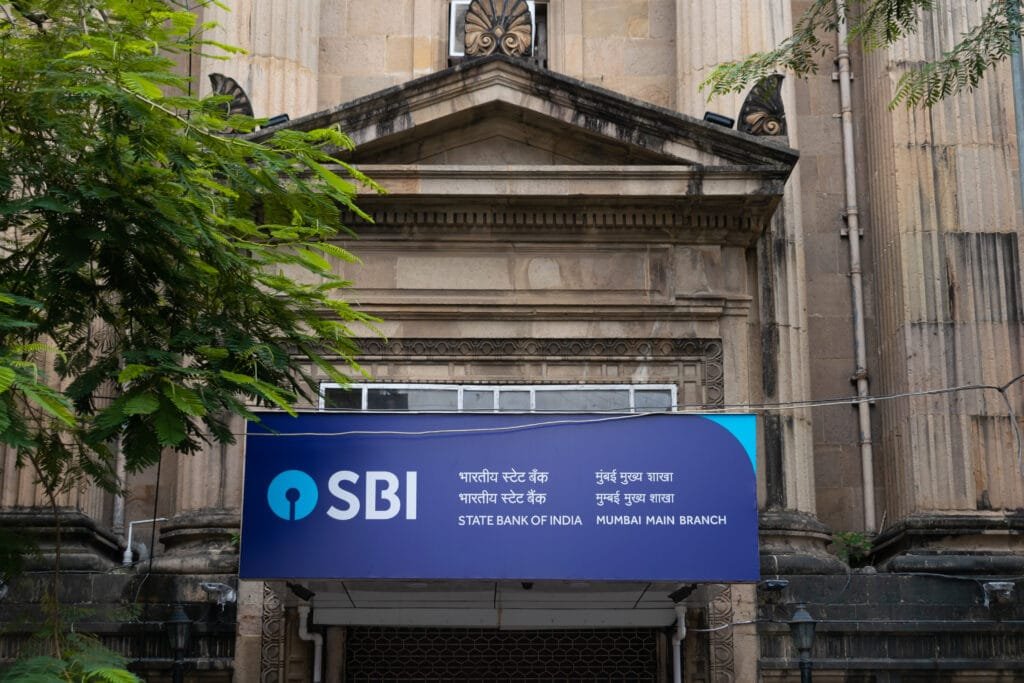
In July 2025, SEBI dropped a bombshell on the Indian financial world. It accused Jane Street, a global trading firm, of one of the biggest market manipulation cases India has ever seen. The charge? A complex strategy that allowed the firm to earn a staggering ₹4,843 crore by manipulating index levels on expiry days.
This two-part article will help you understand everything. Let’s begin with the basics.
What Is Jane Street and Why Is It Under SEBI’s Radar?
Jane Street is a major player in global financial markets. The firm, founded in 2000, is based in New York. Today, it has offices in cities like London, Hong Kong, Singapore, and Mumbai. Known for using technology and algorithms to trade, Jane Street has earned billions in profits.
In India, Jane Street’s operations began through JSI Investments Pvt Ltd in December 2020. Later, in 2024, it added another entity, JSI2, in Mumbai. Both firms are connected to its foreign arms—Jane Street Singapore and Jane Street Asia Trading Ltd.
These companies are registered as Foreign Portfolio Investors (FPIs). With this setup, they got access to India’s fast-growing derivatives market, especially Nifty and Bank Nifty options.
Jane Street’s Entry into India and Its FPI Network
Jane Street didn’t just enter the market quietly. It quickly grew into one of the most active foreign traders in India. Through its FPI network, it placed large trades in index options. These options are highly liquid, especially during expiry days. That made them a great target for high-frequency strategies.
However, SEBI noticed something troubling. The way Jane Street placed and timed its trades seemed unusual. They weren’t just betting on the market—they were moving it.
How Jane Street Traded in India Using Algorithms
Jane Street used a clever method. The trades happened in two parts:
- In the morning, Jane Street would buy a basket of Bank Nifty stocks. These trades would push the index slightly higher.
- At the same time, they would take short positions in Bank Nifty options. These are bets that the index would go down.
- Then, in the afternoon, Jane Street would sell those same stocks aggressively. This selling would pull the index lower.
- As the index fell, their options positions would gain value. They would then sell those options and book a large profit.
This strategy worked best on expiry days, when index movements can have a huge effect on options pricing.
Jane Street’s Market Manipulation Strategy in India
SEBI called this strategy “intra-day index manipulation.” According to its findings, Jane Street followed this plan on 17 expiry days between January 2023 and March 2025. On each of those days, their trades affected how the index moved.
This wasn’t random. It followed a pattern:
- Morning push: Buy Bank Nifty stocks, lift the index.
- Options setup: Take short positions.
- Afternoon dump: Sell the same stocks, drop the index.
Each time, Jane Street profited. But the way they did it distorted the market for everyone else. That’s what led to SEBI’s intervention.
How Jane Street Made ₹36,671 Crore Through Derivatives
Here’s how the numbers stack up:
- Gross profit from derivatives trades: ₹36,671 crore
- Losses in stock futures: ₹7,208 crore
- Losses in index futures: ₹191 crore
- Losses in cash equity: ₹288 crore
- Net suspect profit from the strategy: ₹4,843 crore
SEBI says these gains were not from smart bets. They came from unfairly shifting the market to their advantage.
The biggest single-day gain? On January 17, 2024, Jane Street made over ₹734 crore.
SEBI’s Investigation into Jane Street Scam
SEBI began its deep dive in April 2024. It followed clues from a U.S. court case where Jane Street accused another firm of copying its strategy in India. That case revealed how much money Jane Street had made using this technique.
SEBI sent notices to Jane Street. It also teamed up with the NSE and called in forensic experts. By July 2025, after over a year of investigation, SEBI issued its interim order.
This 105-page order explained exactly how the trades worked. It showed charts, volumes, timestamps, and impact on the index. The evidence pointed to one thing—manipulation.
Laws SEBI Used in Jane Street India Market Manipulation Case
SEBI’s charges are serious. It cited violations of:
- SEBI Act, 1992
- PFUTP Regulations (Prohibition of Fraudulent and Unfair Trade Practices)
- FPI Regulations
- Securities Contracts Regulation Act
These laws protect investors and ensure markets are fair. If Jane Street is found guilty, it could face:
- Permanent trading bans
- Massive fines (up to 3x of illegal profit)
- Cancellation of FPI licenses
- Even criminal charges in extreme cases
SEBI’s Reforms After Jane Street Market Manipulation Probe
SEBI didn’t stop at just banning Jane Street. It began changing the rules. Some key steps include:
- Tracking large trades in real-time
- Flagging unusual movements in delta open interest
- Reviewing algo strategies from all major FPIs
- Asking exchanges to watch expiry-day trades more closely
These reforms aim to prevent similar manipulation in the future. SEBI is also exploring tools to track when options and stock trades are linked.
Market Reactions to Jane Street and SEBI’s Crackdown
The reaction from the market was swift:
- Retail traders supported SEBI’s actions.
- Institutional investors took a cautious approach.
- FPIs are reviewing how they trade in India.
Some stocks, like Angel One and Nuvama, fell sharply. But the broader market remained stable. Most experts said the crackdown was needed and overdue.
Impact on Foreign Investors and Indian Market Rules
India wants foreign investment, but not at the cost of fairness. This case shows that SEBI is ready to act, even against big global firms.
Going forward, FPIs will likely:
- Disclose more details about their trades
- Avoid aggressive expiry-day strategies
- Separate their cash and derivatives teams
This could bring more balance and reduce risks in the derivatives market.
Simplified Example of Jane Street’s Derivatives Strategy
Here’s a quick example:
- Jane Street buys 5 stocks in Bank Nifty, pushing the index up.
- It then takes a short position in Bank Nifty options.
- In the afternoon, it dumps the 5 stocks.
- The index drops. The options gain value. Jane Street profits.
While legal if done for real market reasons, it becomes illegal when done only to move the index.
Will Jane Street Be Banned?
As of now, SEBI has only issued an interim ban. But Jane Street has been told to deposit ₹4,843 crore in an escrow account.
SEBI has given Jane Street 21 days to respond. If the explanation doesn’t hold, a permanent ban and more penalties could follow.
Jane Street has not yet made a public statement.
Lessons from the Jane Street Scam
This case teaches us a lot:
- Big firms must play fair.
- Algorithms need limits.
- Markets need smart, fast regulation.
- SEBI is watching—and can act quickly.
For retail traders, it’s a reminder to be careful in high-risk options trades. For foreign investors, it’s a signal: India is open, but not open to abuse.
Final Thoughts
Jane Street’s ₹4,843 crore case is now a landmark moment. It shows the rise of technology in trading—and the need to control how it’s used.
SEBI’s action is not just a punishment. It’s a message that India is serious about protecting its markets. Retail investors, exchanges, and institutions all stand to gain from stronger rules.
More updates are expected as Jane Street responds. But one thing is clear: India’s markets won’t be the same again.
Jane Street Scam – Frequently Asked Questions
What is the Jane Street market manipulation case?
SEBI alleges that Jane Street used index and options trades to move Nifty and Bank Nifty levels on expiry days, earning ₹4,843 crore in illegal profits.
How did Jane Street manipulate the market?
Jane Street allegedly bought stocks in the morning to push index levels up, took short options positions, then sold those stocks in the afternoon to drop the index and profit.
What action has SEBI taken so far?
SEBI has barred four Jane Street entities from trading, frozen ₹4,843 crore in an escrow account, and given the firm 21 days to respond.
Is Jane Street permanently banned from Indian markets?
No. The ban is interim. SEBI will decide on permanent penalties after receiving Jane Street’s reply.
Why is this case significant for Indian investors?
This is India’s biggest F&O market manipulation case. It highlights the need for tighter algo trade regulation and better retail investor protection.
What laws did Jane Street allegedly violate?
SEBI cited violations under the SEBI Act, PFUTP Regulations, Securities Contracts Regulation Act, and FPI norms.
What reforms is SEBI implementing post-investigation?
SEBI is enhancing expiry-day monitoring, reviewing algo codes, enforcing real-time trade alerts, and tightening FPI disclosures.
Will this impact foreign investments in India?
Possibly. Some FPIs may grow cautious. But stronger rules could build long-term trust and attract quality investors.

